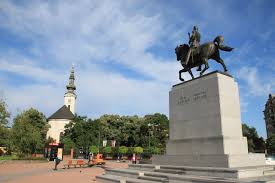Key Developments in Serbia: Politics, Culture, and Society

Introduction
Serbia, a country situated in Southeast Europe, has been in the global spotlight due to significant political, economic, and cultural developments in recent years. As the region navigates its future amidst a complex history, understanding these changes is crucial not only for those within the country but also for international observers interested in Balkan affairs.
Political Landscape
In the political arena, Serbia has faced challenges related to its efforts in becoming a member of the European Union. In October 2023, Serbian President Aleksandar Vučić reaffirmed the government’s commitment to EU integration whilst addressing concerns over domestic reforms, particularly in rule of law and media freedom. The ongoing dialogue between Serbia and Kosovo remains a critical issue, with tensions flaring as both parties engage in discussions over territorial disputes and autonomy rights. The European Union has emphasized that progress in these talks is essential for Serbia’s EU accession.
Economic Developments
Economically, Serbia is experiencing growth, with the IMF projecting a GDP growth rate of around 3% for 2023. However, inflation remains a concern, driven primarily by global energy prices and supply chain issues. The Serbian government is attempting to bolster its economy through investments in infrastructure and technology, aiming to attract foreign direct investment. Recent developments include an increase in initiatives for renewable energy projects, aligning with global climate goals.
Cultural Significance
Culturally, Serbia is rich in traditions and has made notable contributions to music, literature, and arts. The annual EXIT festival, one of Europe’s largest music festivals held in Novi Sad, continues to draw international crowds and showcases both local and global artists. In 2023, the festival highlighted the importance of cultural dialogue and its role in promoting understanding among diverse communities.
Conclusion
In conclusion, Serbia’s journey is emblematic of the broader challenges and opportunities faced by countries in transition. The interplay between political reform, economic development, and cultural expression is vital for its future. As Serbia navigates its path towards EU integration and addresses longstanding regional tensions, the implications are significant not only for its citizens but for the stability and unity of the Balkan region as a whole. Observers will continue to keep a close eye on the unfolding events as Serbia strives for a place on the global stage.
You may also like

Russian Activity in Pokrovsk, Ukraine: Current Developments

Exploring the Wonders of Novi Sad, Serbia
